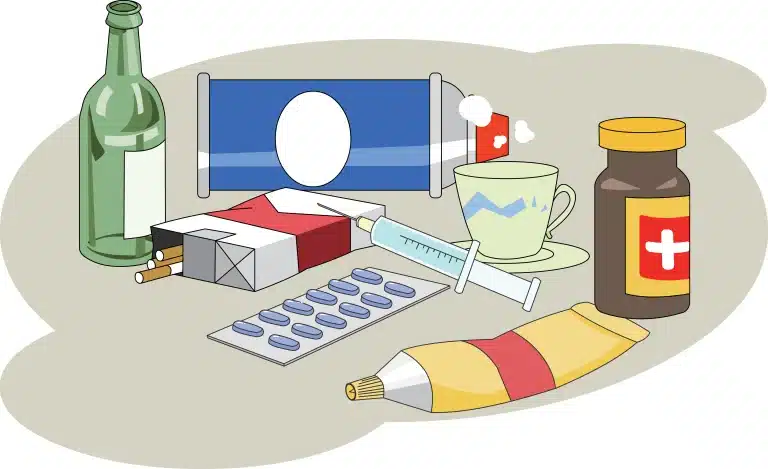Learn valuable strategies and guidance on breaking free from a family history of drug addiction, embracing a drug-free lifestyle for a brighter future.
Drug addiction can be a daunting issue for many families, often running through generations and causing devastating consequences. However, breaking the cycle of addiction is possible. This article will provide valuable insights on how to overcome a family history of drug addiction and offer tips for maintaining a drug-free lifestyle. If you’re ready to start a new chapter in your life, read on to discover how you can break free from the grips of drug addiction.
Overcoming Drug Addiction
Overcoming a family history of drug addiction can be both challenging and rewarding. It is crucial to take proactive steps to break the cycle of addiction and create a meaningful, drug-free life. Here are some tips to help you accomplish this goal:
- Seek professional help: If needed, consult a mental health professional or healthcare provider who specializes in substance use disorder. They can provide advice, guidance, and support related to withdrawal symptoms, coping with cravings, and addressing underlying mental health disorders that may contribute to addiction, such as post-traumatic stress disorder or attention-deficit/hyperactivity disorder.
- Join support groups: Consider attending support groups like Alcoholics Anonymous or Narcotics Anonymous, where you can interact with individuals who have undergone similar experiences. These groups can help you build a strong support system and establish healthy habits for the future.
- Be aware of environmental triggers: Stay vigilant about environmental triggers such as peer pressure or emotional abuse that may lead to drug use. Seek assistance from trusted professionals, such as social workers or school counselors, if needed, to prevent relapse and stay on the path of recovery.
By taking these steps seriously, you can successfully overcome your family history of drug addiction and move forward with a healthier, drug-free lifestyle.

The Influence of Parents on Children’s Attitudes Towards Drugs
Parents play a crucial role in shaping their children’s attitudes towards drugs. Having open conversations about the dangers of substance use helps children understand why staying away from drugs is important. Parents should also be aware of potential environmental factors that may increase their child’s risk for drug use, such as having friends who use drugs or living in an area with high drug availability.
Setting clear expectations for behavior and discussing the risks associated with drug use can empower children to make responsible decisions when faced with peer pressure or an opportunity to try drugs. Additionally, parents should create a safe space for discussing difficult topics like addiction, ensuring that children feel comfortable asking questions or seeking help when needed.
Overall, parents have a significant influence on their children’s attitudes towards drugs. By setting a positive example and teaching children how to make safe and healthy choices, parents can provide the guidance needed to keep them away from dangerous substances.
The Importance of Parental Guidance and Support in Preventing Drug Use
Parental guidance and support are essential in preventing drug use. By providing a safe and supportive environment for their children, parents can help ensure that they make informed decisions when it comes to substance use. It is crucial to communicate openly and honestly about the risks associated with drugs and foster an environment where children feel comfortable seeking guidance and support.
Genetics and Addiction
Genetics can play a significant role in addiction susceptibility. While having a family history of drug addiction doesn’t guarantee that an individual will develop an addiction, it does increase their vulnerability. Certain genetic factors can influence how the body responds to drugs, including how quickly substances are metabolized or eliminated, the intensity of their effects, and the likelihood of developing dependence.
Several genes have been identified as potentially contributing to addiction risk. For example, variations in genes encoding receptors and transporters in the brain, such as the dopamine receptors and the serotonin transporter gene, have been associated with an increased susceptibility to substance abuse. Additionally, genetic variations in enzymes responsible for metabolizing drugs, like alcohol dehydrogenase and cytochrome P450 enzymes, can affect how an individual responds to specific substances.
It’s important to note that genetics alone do not determine addiction. Environmental factors, such as exposure to drugs, stress levels, family dynamics, and social influences, also play a crucial role. The interaction between genetic and environmental factors is complex and can vary from person to person.
Understanding the genetic component of addiction can help individuals make informed decisions about substance use and be aware of their heightened vulnerability. It can also provide insights for healthcare professionals in tailoring prevention and treatment strategies. However, it’s essential to remember that genetics is just one piece of the puzzle, and addiction is a multifaceted issue that requires a comprehensive approach encompassing education, prevention, and support.
By recognizing the potential genetic predisposition to addiction and taking proactive steps to reduce risks, such as maintaining a healthy lifestyle, seeking support, and developing coping strategies, individuals can effectively navigate their susceptibility and work towards a drug-free life. It’s also crucial to remember that even with a genetic predisposition, it is possible to break the cycle of addiction with the right support, treatment, and personal determination.

Recognizing unhealthy drug use in family members:
It can be difficult to recognize when a loved one is struggling with a substance use disorder. Although it can be hard to admit, family members can be affected by drug and alcohol abuse just like anyone else. It is important to take the time to look for signs and symptoms of addiction, so that proper treatment can be sought if necessary.
The most common signs of potential drug use include changes in behavior, physical health, appearance, and relationships. If someone you care about has suddenly become more reclusive or distant, or seems to lack energy or motivation they didn’t have before, this could indicate a problem. Additionally, if their physical appearance has changed significantly or they seem uninterested in activities they used to enjoy, these could also be warning signs of unhealthy drug use.
If you think that someone you care about may have a substance use disorder, it is important to seek help right away. Speak with your doctor or healthcare provider who can provide resources and guidance on how best to approach the situation and get your loved one the help they need.
Child Abuse and Addiction:
Child abuse and addiction are two issues that can have a devastating impact on an individual’s life. Sadly, many people who suffer from childhood abuse are more likely to turn to alcohol or drugs as coping mechanisms. While some may view this as a form of “self-medication,” it is important to note that substance abuse can lead to additional problems down the road.
If you suspect a child in your life is suffering from abuse or has developed an addiction, it is important to get help for them right away. Start by speaking with a school counselor, social worker, or healthcare provider who can provide resources and guidance on how best to approach the situation. Additionally, there are organizations such as Alcoholics Anonymous and Narcotics Anonymous which offer support groups for those struggling with addiction.
It is also essential to remember that overcoming addiction is possible with supportive treatment plans tailored specifically for the individual in need. With the right help, individuals can work through withdrawal symptoms and find ways to cope with their underlying mental health disorders. A mental health professional can be invaluable in helping someone find their way back to sobriety and live a drug-free life.
Risk factors:
There are various risk factors that can heighten an individual’s susceptibility to developing a substance use disorder. These include environmental factors such as living in poverty or having access to drugs and alcohol at an early age. Other risk factors include family history, peer pressure, mental health disorders such as attention-deficit/hyperactivity disorder (ADHD) or post-traumatic stress disorder (PTSD), emotional abuse, and even genetic predisposition. Additionally, individuals who have already experienced one episode of substance abuse may be at a higher risk of developing an addiction if they take a larger dose than normal when using again.
There are many resources available through the National Institute on Drug Abuse and other organizations that can help individuals find the right treatment plan for their needs. With dedication and commitment to the recovery process, it is possible to build a strong foundation for sobriety and lead a drug-free life.
With the right support and treatment, it is possible to overcome the challenges posed by substance use disorder and build a meaningful drug-free life. The next section will discuss how to create lasting change and foster long-term recovery.
Build a meaningful drug-free life
Overcoming a family history of drug addiction is not easy, but it is possible. The first step is to acknowledge the problem and seek help from a professional. A mental health professional, health care provider, school counselor or social worker can provide counseling and guidance to help you understand your risk factors and create a plan for recovery.
It’s also important to reach out for support from friends and family members who are committed to helping you achieve sobriety. Additionally, avoiding people or places associated with substance abuse can help to reduce temptation.
Finally, developing healthy habits such as regular exercise, eating nutritious foods, engaging in activities that bring joy and meaning to life, and getting plenty of sleep can all contribute to long-term recovery success. With dedication and commitment to the recovery process, it is possible to build a strong foundation for sobriety and lead a drug-free life.
Here are some ways in which strong relationships and positive outlets can play a role in staying drug-free:
Supportive Relationships: Surround yourself with individuals who support your recovery and understand the challenges you may face. Build a network of friends, family, and support groups who can provide encouragement, guidance, and accountability. Having a strong support system can help you navigate difficult times and stay focused on your goal of living a drug-free life.
Healthy Social Activities: Engaging in positive and fulfilling activities can help occupy your time and reduce the desire to turn to drugs. Explore hobbies, sports, arts, or volunteer work that bring you joy and a sense of purpose. By filling your life with meaningful activities, you create a sense of fulfillment and fulfillment, making it easier to avoid the temptation of drugs.
Therapy and Counseling: Seeking professional therapy and counseling can provide you with the tools and strategies needed to overcome challenges and maintain your drug-free lifestyle. A therapist or counselor can help you address underlying issues, develop coping mechanisms, and manage triggers effectively. Therapy can also provide a safe space to process emotions and build resilience.
Self-Care Practices: Prioritize self-care to support your overall well-being. Engage in activities that promote physical, mental, and emotional health. This can include regular exercise, practicing mindfulness or meditation, maintaining a balanced diet, and getting enough sleep. Taking care of yourself holistically enhances your ability to cope with stress and reduces the likelihood of turning to drugs for relief.
Continued Education and Learning: Stay informed about addiction, recovery, and relapse prevention. Attend workshops, seminars, or educational programs focused on substance abuse and addiction. Knowledge empowers you to make informed decisions, identify warning signs, and seek help when needed. By expanding your understanding of addiction, you can strengthen your resolve to stay drug-free.
Remember, maintaining a drug-free life is an ongoing commitment. Embracing supportive relationships, engaging in positive activities, seeking professional help, practicing self-care, and staying educated are all essential components of a successful recovery journey. With determination, perseverance, and the right support system, you can overcome a family history of drug addiction and build a fulfilling, drug-free life for yourself and future generations.

Frequently Asked Questions
Below are some commonly asked questions regarding drug addiction, living a drug-free life, and other related topics.
Can someone be immune to drugs?
A person can develop a tolerance to drugs, which means that larger doses are needed to produce the same effect. This tolerance can lead to drug dependency and addiction. It is important to avoid recreational drug use to prevent these issues.
What are the reasons for promoting a drug-free lifestyle?
Maintaining a drug-free lifestyle is crucial for promoting a safe and fulfilling life. Drug use can lead to violent and irresponsible behavior, causing harm to oneself and others. The prevalence of drug addiction in society is a major concern.
What are drug alternatives to stay drug-free?
There are several drug alternatives to promote a drug-free life, including physical activity such as exercise and strength training, acupressure and acupuncture, herbal products, diet and nutrition, bodywork techniques, nutritional supplements, and therapeutic touch. These alternatives provide additional options for addressing problems and stressful situations, demonstrating that drugs are not the only solution.
How to promote a drug-free community?
Promoting a drug-free community can be achieved by sharing knowledge and personal experiences, volunteering time, promoting positive mental health, encouraging community-building activities, and organizing drug awareness events.
What does knowing if addiction is hereditary mean?
Knowing that addiction has a genetic component does not mean that all individuals in a family with a history of drug use are destined to use drugs. However, being aware of the risk factors can be helpful in avoiding drugs and making informed choices.
What is the importance of drug education?
Drug education provides information about the risks associated with all drugs, including those that are legally prescribed. Education on drugs is necessary to prevent dangerous behavior and potential fatalities.
What are different treatment programs for addiction?
There are a wide array of treatment programs available for addiction, such as prescription drug addiction, marijuana addiction, cocaine addiction, alcohol addiction, methamphetamine addiction, and many more. Consulting with a treatment center can help individuals find the best addiction treatment for long-term recovery.
How to stay drug-free?
To stay drug-free, it is important to set smart and beneficial goals, build habits to stay busy and preoccupied, cut out toxic relationships, practice positive self-talk, utilize support systems, walk away from stress, get rid of triggers, and avoid seeking temporary solutions.
How can talking about family history of addiction help strengthen the bond between family members?
Talking about family history of addiction can help strengthen the bond between family members by fostering empathy and understanding. It provides an opportunity to share experiences, provide support, and work together to create healthier relationships. Open dialogue about addiction can also help reduce stigma and shame.
What are some of the most common warning signs of an addiction problem in a family?
Common warning signs of an addiction problem in a family include excessive spending or outside funds being used for drugs or alcohol, lying or secretive behavior, changes in mood, behavior, or health, withdrawal from family and social activities, financial difficulties, and risky or irresponsible behavior, among others.
How can family members help each other to break the cycle of addiction?
To break the cycle of addiction, family members can create a healthy and supportive living environment, practice active listening, set boundaries, provide healthy distractions, encourage treatment when necessary, educate themselves, seek help from addiction counselors and mental health professionals, and manage stress and triggers.
What role does communication play in addressing addiction in a family?
Communication plays a vital role in addressing addiction in a family. It helps break down stigmas, encourages support and understanding, provides guidance and resources, and allows family members to work together to build positive coping strategies. By fostering open and honest communication, family members can create a supportive environment where the impact of addiction can be lessened.
What types of treatments are available to support families affected by addiction?
Families affected by addiction have access to various treatments. These include counseling, support groups, intervention programs, educational programs, and medication-assisted treatments. Counseling and therapy can teach families effective communication and coping skills. Support groups offer a safe space for sharing and support. Intervention programs help create a plan of action. Educational programs provide information about addiction and recovery. Medication-assisted treatments can help reduce cravings and withdrawal symptoms.
How can you create a supportive environment to motivate a family member to stay drug-free?
To motivate a family member to stay drug-free, it is important to create a supportive environment. Encourage them to develop a recovery plan and set achievable goals. Provide emotional and practical support without placing blame or guilt. Encourage open communication and active listening to reduce stigma and fear. Stay nonjudgmental and supportive to increase the likelihood of successful recovery. Focus on positive reinforcement and encourage participation in drug-free social events and activities.
What role do strong relationships and positive outlets play in staying drug-free?
Staying drug-free is a journey that requires effort and commitment. Strong relationships and positive outlets play a significant role in maintaining a drug-free lifestyle. Friends and family can provide understanding, compassion, and guidance during times of need. Having a strong support system in place can provide the necessary motivation and encouragement to stay on the path of recovery. Engaging in positive outlets, such as spending time in nature, participating in hobbies, and pursuing meaningful activities, can help individuals cope with stress, reduce cravings, and improve overall well-being.
Costa Rica Treatment Center Helps Promote a Drug-Free Life
While certain factors may increase the likelihood of drug use and addiction, it is challenging to predict who will ultimately develop an addiction. It is important to recognize that no one is predetermined to become an addict, as everyone has the opportunity to resist and choose to live a drug-free life. Although this decision may involve formidable obstacles, there is always potential for recovery.
Recovering from drug addiction is possible with the right mindset and help. Addiction does not have to define your life, even if it has been a long-standing issue in your family. Costa Rica Treatment Center (CRTC) is dedicated to offering certified programs with unique approaches that ensure a comprehensive and clean living experience.
CRTC provides professional care for addiction recovery that goes beyond addressing surface-level symptoms. Our treatment program is holistic and evidence-based, focusing on addressing underlying addiction and mental health issues. With a high staff-to-patient ratio and affordable prices, CRTC believes that recovery and a healthy life should not be exclusive to those who can afford it. We are committed to helping individuals change their lives for the better.
At Costa Rica Treatment Center, patients work collaboratively with the experienced team towards building a better life after treatment. With our comprehensive approach, personalized care, and emphasis on long-term recovery, CRTC aims to support individuals on their journey towards a drug-free and fulfilling life.








